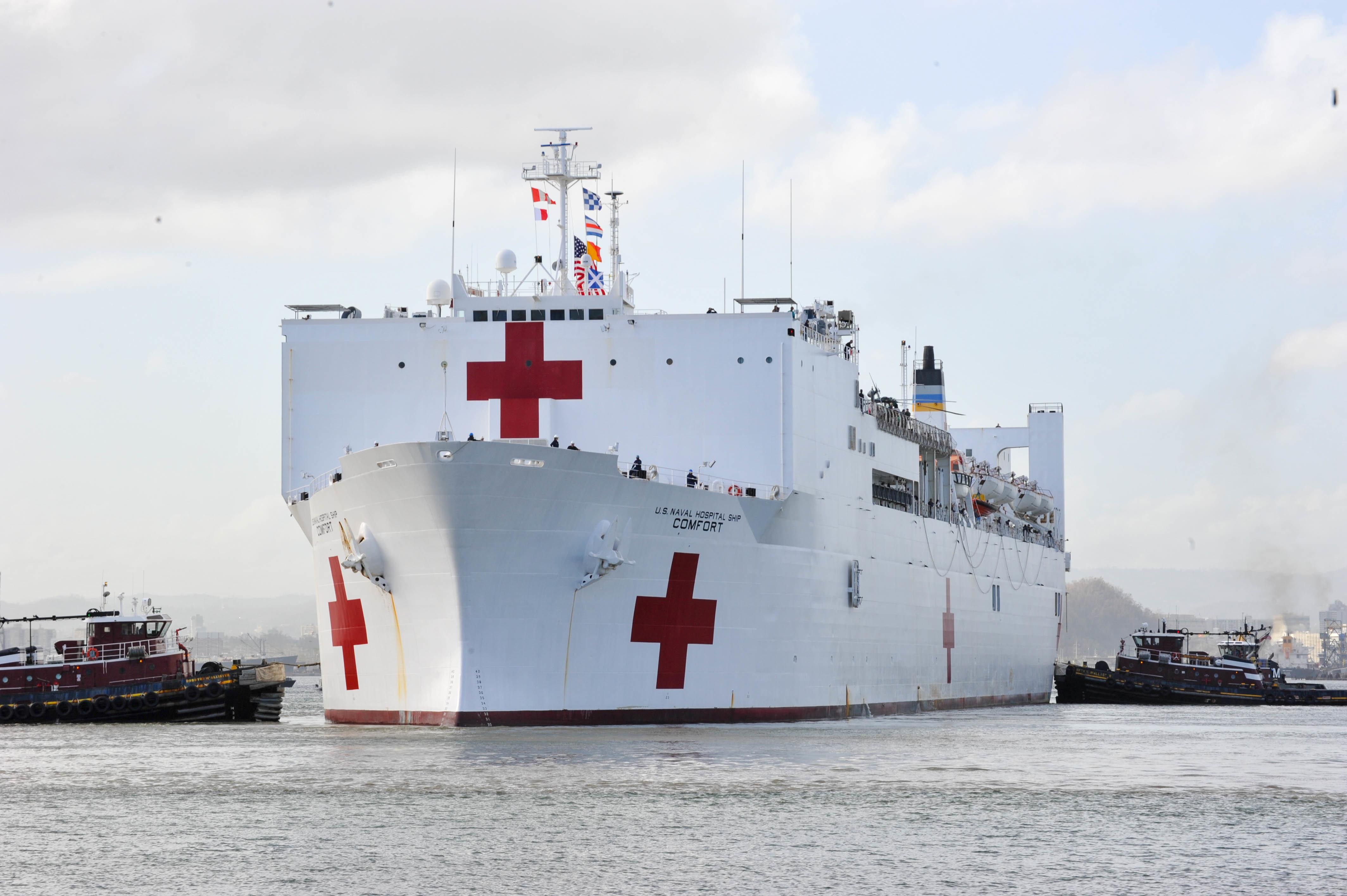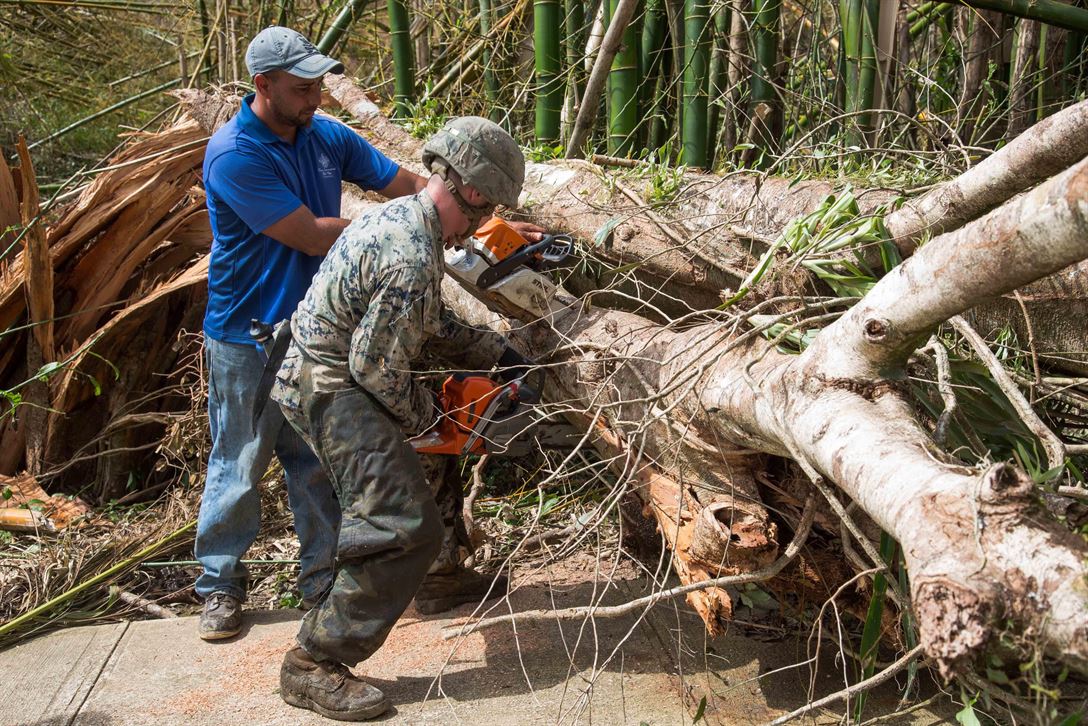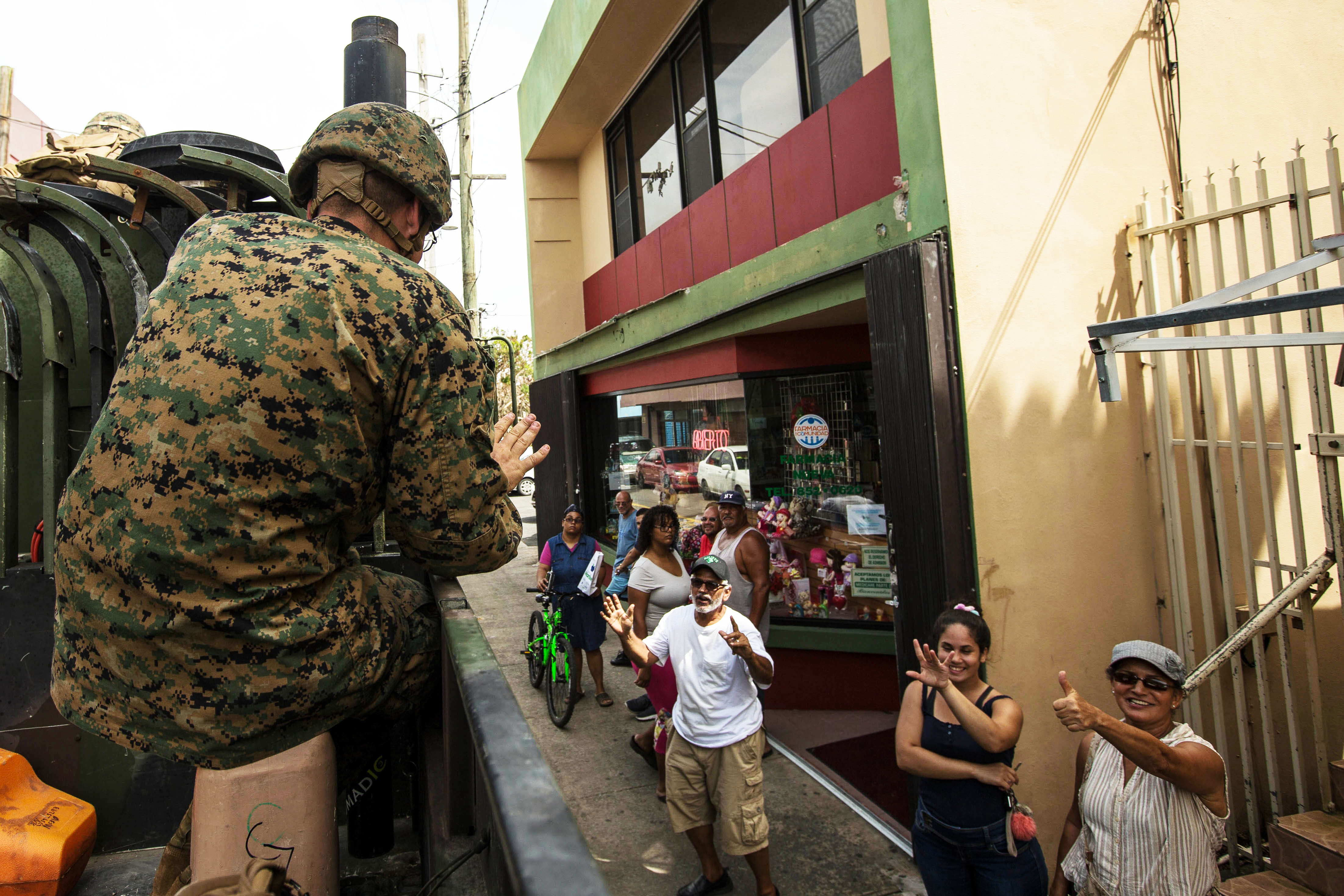
Hospital ship USNS Comfort (T-AH-20) arrived in Puerto Rico Tuesday morning, providing much-needed medical capabilities as most of the island’s medical facilities still have no power two weeks after Hurricane Maria made landfall.
As of Tuesday morning, when Comfort pulled into Puerto Rico, only 10 of the island’s 69 hospitals were fully reconnected to the electrical grid, Puerto Rico governor Ricardo Rossello said Tuesday morning during a press conference. The rest of the island’s medical facilities, including nearly all of Puerto Rico’s 48 kidney dialysis centers, continue to rely on diesel-fueled generators.

Hurricane Maria completely destroyed Puerto Rico’s power grid, and Rossello said only 5 percent of the power company’s customers had been reconnected as of Tuesday morning. Within the month, the goal is to have a quarter of Puerto Rico’s customers reconnected to the electrical grid. Restoring power to hospitals will be a priority as workers rebuild the power grid, he added.
Comfort has 250 beds and arrived with about 750 Navy medical staff onboard, according to a Navy statement. Pediatricians, surgeons, nurse practitioners, surgical technicians, and various support personnel will provide care that is otherwise hard to come by as the island starts to rebuild.
Comfort’s staff joins the relief efforts of sailors and Marines from the Kearsarge Amphibious Ready Group and 26th Marine Expeditionary Unit, which have spent the last month in the region airlifting food, water, and other supplies to islands affected by hurricanes Irma and Maria. Marines have been preparing for Comfort‘s arrival by transporting hospital assessment teams on the ground and through the air to inspect Puerto Rico’s hospitals.

The ARG includes amphibious assault ship USS Kearsarge (LHD-3) and dock landing ship USS Oak Hill (LSD-51). Later this week, USS Wasp (LHD-1) is expected to join the Kearsarge ARG, bringing additional helicopters to assist with the disaster relief effort. Wasp has three MH-60 and two MH-53 helicopters, but will arrive with an additional four MH-53 and six MH-60 helicopters, according to a Navy spokesperson.
Nearly 400 miles of roadway have been cleared so far, but Rossello said 19 routes considered critical for food, water, supplies distribution and access to health care still need to be cleared. Marines have delivered more than 14,500 pounds of relief supplies, according to U.S. Northern Command, while also working to clear roads of debris.





